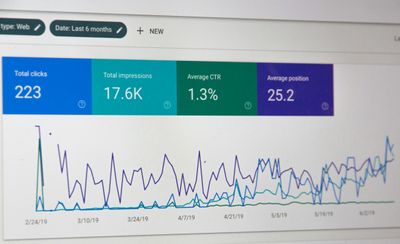Starting a business in Australia offers an excellent environment for entrepreneurs looking to launch their own ventures. With a stable economy, a highly educated workforce, and a strong support system for startups, Australia has become an attractive destination for individuals looking to start their own businesses. However, navigating the complex legal, financial, and regulatory requirements can be overwhelming.
In this comprehensive guide, we will take you through the essential steps of starting a business in Australia, including legal requirements, financial considerations, and resources available to help you launch your venture successfully. Whether you are a first-time entrepreneur or an experienced business owner, this guide will provide you with valuable insights and practical tips to help you succeed in Australia's vibrant business landscape.
How to start a business in Australia - Step by Step
Starting a business in Australia involves several steps, including selecting a business structure, registering your business name and obtaining an Australian Business Number (ABN), obtaining any necessary licenses and permits, and complying with Australian laws and regulations. Here are the steps to start a business in Australia:
- Choose your business structure: Before you start your business, you need to choose the most appropriate business structure for your needs. The most common structures in Australia are Sole trader, Partnership, Company, and Trust.
- Register your business name: Once you have chosen your business structure, you need to register your business name. You can do this online through the Registry Australia website. You will need to check that the name you choose is available and meets ASIC's requirements.
- Register Domain Name: Registering a domain name is an important step in establishing an online presence for your business in Australia. Choose a domain name that reflects your business and is easy to remember. Registering a domain name is now very easy with Registry Australia. Click here to check out if your desired domain name is available.
- Obtain an Australian Business Number (ABN): An ABN is a unique 11-digit number that identifies your business to the government and other businesses. You can apply for an ABN online through the Registry Australia Portal.
- Obtain any necessary licenses and permits: Depending on your industry and the type of business you are starting, you may need to obtain various licenses and permits before you can start operating. You can find information on the licenses and permits you need on the Australian Business License and Information Service (ABLIS) website.
- Understand Australian laws and regulations: As a business owner in Australia, you need to understand the laws and regulations that apply to your industry and business. This includes employment laws, tax laws, consumer laws, and more. Further details are provided under the heading: Licenses and Permits required to do business in Australia
- Set up your business finances: You need to set up your business finances, including opening a business bank account and organising your accounting and bookkeeping systems.
- Obtain business insurance: Business insurance can help protect your business from financial losses due to unforeseen events. You should consider obtaining public liability insurance, professional indemnity insurance, and other types of insurance as needed.
Registry Australia also offers business insurance services to help businesses in Australia manage their risks and protect their assets. Our insurance services are designed to be affordable and flexible, with tailored coverage options to suit the specific needs of your business. - Launch your business: Once you have completed all the necessary steps, you are ready to launch your business!
Choosing the Right Business Structure
Australia offers several different business structures, each with its advantages and disadvantages. The most common business structures in Australia are Sole Trader, Partnership, Company, and Trust.
- A sole trader is a simple structure where you are the sole owner of the business and are personally responsible for all aspects of the business, including debts and legal obligations.
- A partnership is a structure where two or more people share ownership of a business and share profits and losses.
- A company is a separate legal entity that is owned by shareholders, and the company is responsible for its debts and legal obligations.
- A trust is a structure where the business is held and managed by a trustee on behalf of the beneficiaries.
Choosing the best structure for your business depends on your individual circumstances, such as your industry, the number of owners, and your goals for the business. For example, a sole trader may be appropriate for a small business with minimal risk, while a company may be more appropriate for a high-risk business with multiple owners.
It's important to seek professional advice from an accountant or lawyer to help you choose the best structure for your business. Or you can do it the easy way, just contact Registry Australia for all your needs.
Can I register an LLC in Australia?
Australia doesn't offer to open an LLC. In Australia, the closest equivalent to a Limited Liability Company (LLC) is a proprietary limited company (Pty Ltd). Pty Ltd companies are a popular business structure in Australia, particularly for medium-sized and large businesses.
A Pty Ltd company is a separate legal entity from its owners (shareholders), which means that the company is responsible for its debts and legal obligations. Shareholders are only responsible for the amount they have invested in the company. This structure provides the same limited liability protection as an LLC in other countries.
To form a Pty Ltd company, you can contract Registry Australia by providing details such as the company name, address, and director details. You will also need to have at least one shareholder. Pty Ltd companies are subject to ongoing compliance requirements, such as lodging annual financial statements and keeping company records.
Business Plan is not a legal requirement, however…..
A business plan is not a legal requirement in Australia, but it is highly recommended. A business plan is a document that outlines your business goals, strategies, and finances. It can help you secure funding, attract customers, and guide your business decisions. While it is not required by law, having a well-written business plan can increase your chances of success and provide a roadmap for your business's future.
That being said, there are certain instances where a business plan may be required. For example, if you are applying for a loan from a bank or other financial institution, they may require a business plan as part of the application process. Similarly, if you are seeking investment from venture capitalists or other investors, they may want to see a business plan before making a decision.
Tips to do the market research and create a business plan
- Define your target market: Conduct research to identify your target market and determine their demographics, behaviours, and needs. This will help you tailor your products or services to their specific preferences and create a marketing plan that resonates with them.
- Analyse your competition: Research your competitors to determine their strengths, weaknesses, and strategies. This will help you identify opportunities and threats in the market, and allow you to differentiate your business from others in the industry.
- Conduct a SWOT analysis: A SWOT analysis (Strengths, Weaknesses, Opportunities, Threats) can help you identify the internal and external factors that may affect your business's success. This analysis can help you create a plan to capitalise on your strengths, address your weaknesses, seize opportunities, and mitigate threats.
- Determine your Unique Selling Proposition (USP): Your USP is what sets your business apart from others in the industry. Determine what makes your business unique and how you can use that to your advantage in your marketing and sales efforts.
- Develop a marketing strategy: Using the information gathered from your market research, create a comprehensive marketing strategy that outlines your target audience, messaging, channels, and tactics. This will help you effectively reach your target market and achieve your business goals.
- Create a financial plan: Your financial plan should include your projected income statement, balance sheet, and cash flow statement. This will help you determine your startup costs, break-even point, and financial projections for the first few years of your business. It will also help you determine how much funding you need to start and sustain your business.
Licenses and Permits required to do business in Australia
The licenses and permits required before starting a business in Australia vary depending on the type of business and industry. Here are some common licenses and permits that may be required:
- Business registration: All businesses operating in Australia must be registered and obtain an Australian Business Number (ABN). Contact Registry Australia to get ABN.
- Industry-specific licenses: Many industries in Australia require specific licenses and permits. For example, food businesses may need to obtain a food handling permit, while construction businesses may require a building license.
- Environmental permits: Businesses that have an impact on the environment, such as those that produce waste or emissions, may require environmental permits to operate.
- Health and safety permits: Businesses that operate in industries such as construction or manufacturing may need to obtain health and safety permits to ensure they meet the necessary safety standards.
- Liquor licenses: Businesses that sell alcohol, such as bars and restaurants, need to obtain a liquor license.
- Trademark registration: If you have a unique business name, logo, or slogan, it's important to register a trademark to protect your intellectual property.
Your business must comply with Australian laws
Complying with Australian laws and regulations is essential for any business operating in the country. Here's a short guide on how to comply with key regulations:
- Employment laws: Australian employers must comply with a range of laws relating to employment, such as minimum wage requirements, employee entitlements, and anti-discrimination laws. Ensure that you have employment contracts in place for all staff, pay them in accordance with relevant awards, and comply with workplace health and safety regulations.
- Taxation laws: Australian businesses must register for an Australian Business Number (ABN) and comply with tax laws, such as Goods and Services Tax (GST) and Pay-As-You-Go (PAYG) withholding. It's important to keep accurate financial records, lodge your tax returns on time, and seek professional advice if needed.
- Consumer protection laws: Businesses operating in Australia must comply with consumer protection laws, such as the Australian Consumer Law (ACL), which provides consumers with a range of protections including guarantees around product quality and safety. Ensure that your products and services meet all relevant standards and that your advertising is truthful and not misleading.
- Insurance laws: Businesses in Australia are required to have certain types of insurance, such as workers' compensation insurance, and may benefit from other types of insurance such as public liability insurance. Research the insurance requirements for your industry and ensure that you have appropriate coverage in place.
Resources for information on starting a business in Australia
Here is a list of resources and government websites that can provide further information and assistance for businesses in Australia:
1. Registry Australia: Registry Australia is an all-rounder and useful resource for businesses in Australia. Registry Australia provides a range of services related to business registration and compliance, including company registration, ABN registration, trademark registration, and business name registration. They also offer a range of tools and resources to help businesses manage their regulatory obligations. Their website is www.registryaustralia.com.au.
- Australian Securities and Investments Commission (ASIC): Provides information on business registration, company structures, and regulatory requirements.
Website: www.asic.gov.au
- Australian Taxation Office (ATO): Provides information on taxation, including GST, PAYG withholding, and income tax.
Website: www.ato.gov.au
- Fair Work Ombudsman: Provides information on employment laws and workplace relations, including pay rates, awards, and entitlements. Website:
- Australian Competition and Consumer Commission (ACCC): Provides information on consumer protection laws and regulations, including the Australian Consumer Law (ACL).
Website: www.accc.gov.au
- Business.gov.au: Provides information on starting and running a business, including financial management, marketing, and legal requirements.
Website: www.business.gov.au
- Australian Trade and Investment Commission (Austrade): Provides information and support for businesses looking to export or expand their operations overseas.
Website: www.austrade.gov.au
- Australian Small Business and Family Enterprise Ombudsman: Provides support and advocacy for small businesses, including dispute resolution and advice on regulatory compliance.
Website: www.asbfeo.gov.au





